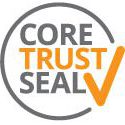Metadata Report for BODC Series Reference Number 26715
Metadata Summary
Problem Reports
Data Access Policy
Narrative Documents
Project Information
Data Activity or Cruise Information
Fixed Station Information
BODC Quality Flags
SeaDataNet Quality Flags
Metadata Summary
Data Description |
|||||||||||||||||||||||||
|
|||||||||||||||||||||||||
Data Identifiers |
|||||||||||||||||||||||||
|
|||||||||||||||||||||||||
Time Co-ordinates(UT) |
|||||||||||||||||||||||||
|
|||||||||||||||||||||||||
Spatial Co-ordinates | |||||||||||||||||||||||||
|
|||||||||||||||||||||||||
Parameters |
|||||||||||||||||||||||||
|
|||||||||||||||||||||||||
|
|||||||||||||||||||||||||
Problem Reports
No Problem Report Found in the Database
Data Access Policy
Open Data
These data have no specific confidentiality restrictions for users. However, users must acknowledge data sources as it is not ethical to publish data without proper attribution. Any publication or other output resulting from usage of the data should include an acknowledgment.
If the Information Provider does not provide a specific attribution statement, or if you are using Information from several Information Providers and multiple attributions are not practical in your product or application, you may consider using the following:
"Contains public sector information licensed under the Open Government Licence v1.0."
Narrative Documents
Aanderaa Recording Current Meter Model 4/5
Manufacturer's specifications: Meter (recording unit: height 51cm, diameter 12.8cm, vane size 37x100cm; overall: length 137cm, height 75cm) is designed for depths down to 2000m (6000m RCM model 5). It incorporates a spindle which is shackled into the mooring line. The meter is attached to the spindle through a gimbal mounting which permits a maximum 27° deviation of the spindle from the vertical, the meter still remaining horizontal.
Meter comprises :-
-
Savonius rotor magnetically coupled to an electronic counter - the number of revolutions during the sampling interval giving the average current speed over the interval - starting speed 2cm/s (users find 1.5 to 3cm/s), range 2.5 to 250cm/s, accuracy greater of 1cm/s or 2 per cent.
-
Vane, which aligns instrument with current flow, has a balance weight ensuring static balance and tail fins to ensure dynamic balance in flows up to 250cm/s.
-
Magnetic compass (needle is clamped to potentiometer ring at instant of sampling only) - direction recorded with 0.35° resolution, 5° accuracy (1.5° claimed by MAFF, Lowestoft) for speeds 5 to 100cm/s, 7.5° accuracy for remaining speeds within 2.5 to 200cm/s range, maximum compass tilt (i.e. maximum deviation of the meter from the horizontal at which the meter still registers correctly) is 12° in both pitch and roll axes.
-
Quartz clock, accuracy better than 2sec/day within temperature range 0 to 20°C.
-
Thermistor (temperature sensor), standard range -2.46 to 21.48°C (max on high range 36.04°C), accuracy 0.15°C, resolution 0.1 per cent of range, 63 per cent response time 12sec.
-
Inductive cell conductivity sensor (optional), range 0 to 70mmho/cm standard resolution 0.1 per cent of range.
-
Bourdon tube pressure sensor (optional) driving a potentiometer - range 0 to 100, 200, 500, 1000 or (RCM4 to 3000psi), (RCM5 to 5000, or 8000psi), lowest calibrated pressure 14.24psi, accuracy 1 per cent of range, resolution 0.1 per cent of range.
-
Self balancing potentiometer which converts the output from each sensor into a 10 bit binary number for storage on magnetic tape.
-
Associated electronics.
Sample duration equals nominal interval between data cycles pre-chosen as 0.5, 1, 2, 5, 10, 15, 20, 30, 60 or 180 minutes. Sample recording order: meter reference number, temperature, (conductivity, pressure if installed), current direction, speed.
Manufacturer's calibration formulae:
Meters (manufactured prior to October 1974) with analogue measurement of speed, i.e. the Savonius rotor drives a potentiometer via a magnetically coupled follower and gearbox (6000 : 1 gear ratio):
speed = 1.5 + 246 * (M/T) cm/s (1)
meters with digital measurement of speed i.e. utilizing an electronic reed switch to count the total number of rotor revolutions during the sampling interval:
speed = 1.5 + 42 * B * (M/T) cm/s (2)
all meters:
direction = 1.5 + 0.349N ° magnetic (3)
where
B is the number of rotor revolutions per count, M (bits) binary is the count over the sampling interval T (sec) and N (bits) binary is the direction reading.
Note:
Data collecting laboratories may calibrate their own meters and so not use the manufacturer's calibration equations.
BODC Current Meter Screening
BODC screen both the series header qualifying information and the parameter values in the data cycles themselves.
Header information is inspected for:
- Irregularities such as unfeasible values
- Inconsistencies between related information. For example:
- Depths of meter and sea bed.
- Times for mooring deployment and for start/end of data series.
- Length of record or number of data cycles, the cycle interval, the clock error and the period over which accrued.
- Parameters stated as measured and the parameters actually present in the data cycles.
- Originator's comments on meter/mooring performance and data quality.
Documents are written by BODC highlighting irregularities which cannot be resolved.
Data cycles are inspected using time series plots of all parameters. Currents are additionally inspected using vector scatter plots and time series plots of North and East velocity components. These presentations undergo intrinsic and extrinsic screening to detect infeasible values within the data cycles themselves and inconsistencies as seen when comparing characteristics of adjacent data sets displaced with respect to depth, position or time. Values suspected of being of non- oceanographic origin may be tagged with the BODC flag denoting suspect value.
The following types of irregularity, each relying on visual detection in the time series plot, are amongst those which may be flagged as suspect:
- Spurious data at the start or end of the record.
- Obvious spikes occurring in periods free from meteorological disturbance.
- A sequence of constant values in consecutive data cycles.
If a large percentage of the data is affected by irregularities, deemed abnormal, then instead of flagging the individual suspect values, a caution may be documented. Likewise documents will highlight irregularities seen in the current vector scatter plots such as incongruous centre holes, evidence of mooring 'knock-down', abnormal asymmetry in tidally dominated records or gaps as when a range of speeds or directions go unregistered due to meter malfunction.
The term 'knock-down' refers to the situation when the 'drag' exerted on a mooring at high current speeds may cause instruments to tilt beyond the angle at which they are intended to operate. At this point the efficiency of the current sensors to accurately record the flow is reduced.
Inconsistencies between the characteristics of the data set and those of its neighbours are sought, and where necessary, documented. This covers inconsistencies in the following:
- Maximum and minimum values of parameters (spikes excluded).
- The orientation and symmetry of the current vector scatter plot.
- The direction of rotation of the current vectors.
- The approximate amplitude and periodicity of the tidal currents.
- The occurrence of meteorological events and, finally, for series for which no time check was possible, the phase.
This intrinsic and extrinsic screening of the parameter values seeks to confirm the qualifying information and the source laboratory's comments on the series. In screening and collating information, every care is taken to ensure that errors of BODC making are not introduced.
Data Processing Notes
The data were low-pass filtered, the transmittance of the filter is close to 1 for 0 to 12 cycles per day and close to 0 at 24 cycles per day. The data were then thinned by 3 to give nominally half-hourly values.
Mooring and Data Processing Information
Mooring Details
The meters were deployed on an I-shaped mooring, with an anchor on the sea floor leading by means of a wire rope to the release gear and command pinger, leading to the in-line current meters, a pinger and finally, the subsurface buoy. On occasion a sea floor pressure recorder was incorporated in the mooring system.
Data Processing
The data were translated from tape to cards and obviously incorrect values (i.e. zeros) were replaced by interpolation. Dead spaces between 1024 and 0 on the speed series were linearly interpolated. The data were then copied to disk, calibrated to m/sec and true direction and resolved to u(north component) and v(east component).
Project Information
No Project Information held for the Series
Data Activity or Cruise Information
Data Activity
| Start Date (yyyy-mm-dd) | 1971-08-14 |
| End Date (yyyy-mm-dd) | 1971-09-13 |
| Organization Undertaking Activity | Institute of Coastal Oceanography and Tides (now National Oceanography Centre, Liverpool) |
| Country of Organization | United Kingdom |
| Originator's Data Activity Identifier | C5 |
| Platform Category | subsurface mooring |
Mooring Information
Mooring held 2 meters.
Related Data Activity activities are detailed in Appendix 1
Fixed Station Information
No Fixed Station Information held for the Series
BODC Quality Control Flags
The following single character qualifying flags may be associated with one or more individual parameters with a data cycle:
| Flag | Description |
|---|---|
| Blank | Unqualified |
| < | Below detection limit |
| > | In excess of quoted value |
| A | Taxonomic flag for affinis (aff.) |
| B | Beginning of CTD Down/Up Cast |
| C | Taxonomic flag for confer (cf.) |
| D | Thermometric depth |
| E | End of CTD Down/Up Cast |
| G | Non-taxonomic biological characteristic uncertainty |
| H | Extrapolated value |
| I | Taxonomic flag for single species (sp.) |
| K | Improbable value - unknown quality control source |
| L | Improbable value - originator's quality control |
| M | Improbable value - BODC quality control |
| N | Null value |
| O | Improbable value - user quality control |
| P | Trace/calm |
| Q | Indeterminate |
| R | Replacement value |
| S | Estimated value |
| T | Interpolated value |
| U | Uncalibrated |
| W | Control value |
| X | Excessive difference |
SeaDataNet Quality Control Flags
The following single character qualifying flags may be associated with one or more individual parameters with a data cycle:
| Flag | Description |
|---|---|
| 0 | no quality control |
| 1 | good value |
| 2 | probably good value |
| 3 | probably bad value |
| 4 | bad value |
| 5 | changed value |
| 6 | value below detection |
| 7 | value in excess |
| 8 | interpolated value |
| 9 | missing value |
| A | value phenomenon uncertain |
| B | nominal value |
| Q | value below limit of quantification |
Appendix 1: C5
Related series for this Data Activity are presented in the table below. Further information can be found by following the appropriate links.
If you are interested in these series, please be aware we offer a multiple file download service. Should your credentials be insufficient for automatic download, the service also offers a referral to our Enquiries Officer who may be able to negotiate access.
| Series Identifier | Data Category | Start date/time | Start position | Cruise |
|---|---|---|---|---|
| 37786 | Offshore sea floor pressure series | 1971-08-14 07:07:29 | 59.9981 N, 2.9624 W | Not applicable |


